Related Research Articles
Bruce Lorne Campbell is an American actor and director. He is known for portraying Ash Williams in Sam Raimi's Evil Dead franchise, beginning with the 1978 short film Within the Woods. He has starred in many low-budget cult films such as Crimewave (1985), Maniac Cop (1988), Sundown: The Vampire in Retreat (1989), and Bubba Ho-Tep (2002).
A director's cut is an edited version of a film that is supposed to represent the director's own approved edit in contrast to the theatrical release. "Cut" explicitly refers to the process of film and game editing; in preparing a film for release, the director's cut is preceded by the assembly and rough editor's cut and usually followed by the final cut meant for the public film release and video game release.

The Evil Dead is a 1981 American supernatural horror film written and directed by Sam Raimi, produced by Robert Tapert and executive produced by Raimi, Tapert, and Bruce Campbell, who also starred alongside Ellen Sandweiss, Richard DeManicor, Betsy Baker and Theresa Tilly. The film focuses on five college students vacationing in an isolated cabin in a remote wooded area. After they find an audio tape that, when played, releases a legion of demons and spirits, four members of the group suffer from demonic possession, forcing the fifth member, Ash Williams (Campbell), to survive an onslaught of increasingly gory mayhem.

A film crew is a group of people, hired by a production company, for the purpose of producing a film or motion picture. The crew is distinguished from the cast, as the cast are understood to be the actors who appear in front of the camera or provide voices for characters in the film. The crew is also separate from the producers, as the producers are the ones who own a portion of either the film studio or the film's intellectual property rights. A film crew is divided into different departments, each of which specializes in a specific aspect of the production. Film crew positions have evolved over the years, spurred by technological change, but many traditional jobs date from the early 20th century and are common across jurisdictions and filmmaking cultures.

Samuel M. Raimi is an American filmmaker. He is best known for directing the Spider-Man trilogy (2002–2007) and the Evil Dead franchise (1981–present). He also directed the 1990 superhero film Darkman, the 1995 revisionist western The Quick and the Dead, the 1998 neo-noir crime-thriller A Simple Plan, the 2000 supernatural thriller film The Gift, the 2009 supernatural horror film Drag Me to Hell, and the 2013 Disney fantasy film Oz the Great and Powerful. His films are known for their highly-dynamic visual style, inspired by comic books and slapstick comedy.
A film producer is a person who oversees film production. Either employed by a production company or working independently, producers plan and coordinate various aspects of film production, such as selecting the script, coordinating writing, directing, editing, and arranging financing.
A showrunner is the top-level executive producer of a television series production who has creative and management authority through combining the responsibilities of employer and, in comedy or dramas, typically also the head writer, script and story editor. They consult with network and studio bosses and lead the artistic vision of the show, including the writers room, editing department, as well as select the set design, staff, cast members, and each actor's wardrobe and hairstyle. In many instances, the showrunner also created the show, and subsequent seasons could feature different showrunners.
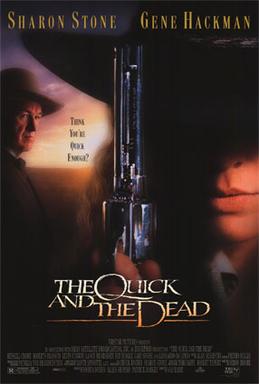
The Quick and the Dead is a 1995 American revisionist Western film directed by Sam Raimi, and starring Sharon Stone, Gene Hackman, Russell Crowe and Leonardo DiCaprio. The screenplay was written by Simon Moore but includes contributions from Joss Whedon. The story focuses on "The Lady" (Stone), a gunfighter who rides into the frontier town of Redemption, controlled by John Herod (Hackman). The Lady joins a deadly dueling competition in an attempt to exact revenge for her father's death.
Filmmaking is the process by which a motion picture is produced. Filmmaking involves a number of complex and discrete stages, starting with an initial story, idea, or commission. It then continues through screenwriting, casting, pre-production, shooting, sound recording, post-production, and screening the finished product before an audience that may result in a film release and an exhibition. Filmmaking occurs in a variety of economic, social, and political contexts around the world. It uses a variety of technologies and cinematic techniques.

Principal photography is the phase of producing a film or television show in which the bulk of shooting takes place, as distinct from the phases of pre-production and post-production.
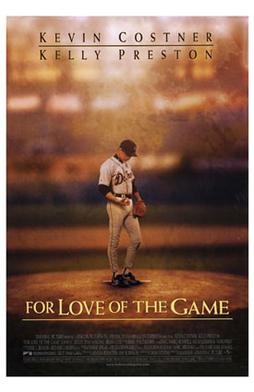
For Love of the Game is a 1999 American sports drama film directed by Sam Raimi and written by Dana Stevens based on Michael Shaara's 1991 novel of the same title. Starring Kevin Costner and Kelly Preston, it follows the perfect game performance of an aging star baseball pitcher, Billy Chapel as he deals with the pressures of pitching in Yankee Stadium in the Bronx in his final outing by calming himself with memories about a long-term relationship.
A production company, production house, production studio, or a production team is a studio that creates works in the fields of performing arts, new media art, film, television, radio, comics, interactive arts, video games, websites, music, and video. These groups consist of technical staff to produce the media, and are often incorporated as a commercial publisher. Generally the term refers to all individuals responsible for the technical aspects of creating a particular product, regardless of where in the process their expertise is required, or how long they are involved in the project. For example, in a theatrical performance, the production team has not only the running crew, but also the theatrical producer, designers and theatrical direction.
Television crew positions are derived from those of film crew, but with several differences.
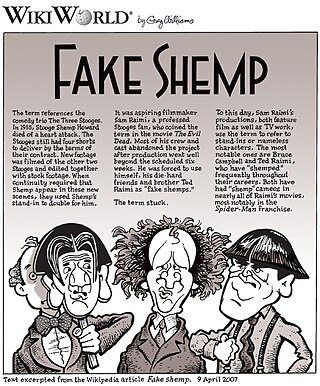
A fake Shemp is a type of body double who appears in a film as a replacement for another actor or person, usually when the original actor has died, or is unable or unwilling to reprise their role. Their appearance is disguised using methods such as heavy make-up, filming from the back, dubbing in audio and splicing in past footage from the original actor's previous work, using a sound-alike voice actor, or using partial shots of the actor.
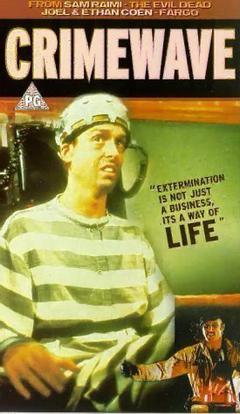
Crimewave is a 1985 American comedy film directed by Sam Raimi, from a screenplay he co-wrote with the Coen brothers. It stars Reed Birney, Sheree J. Wilson, Paul L. Smith, Brion James, Louise Lasser and Bruce Campbell, with the latter also serving as a co-producer. An unusual slapstick mix of film noir, black comedy, Hitchcockian suspense, B-movie and conventions, Crimewave portrays bizarre situations involving a nebbish everyman (Birney) entangled in a murderous plot while pursuing his love interest (Wilson).

Mark Damon is an American film actor and producer. He became noted for roles in films like Roger Corman's House of Usher, before moving to Italy and becoming a notable Western star and member of the 1960s Dolce Vita set of actors and actresses in Rome. After starring in over 50 films in the United States and Europe, he quit acting and reinvented himself as a film producer and pioneer of the foreign sales business in the 1970s, and became one of Hollywood's most prolific producers.
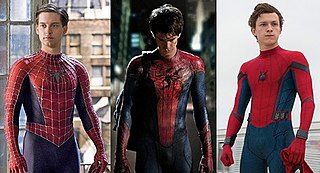
The fictional character Spider-Man, a comic book superhero created by Stan Lee and Steve Ditko and featured in Marvel Comics publications, has appeared as a main character in numerous theatrical and made-for-television films.

A film director controls a film's artistic and dramatic aspects and visualizes the screenplay while guiding the film crew and actors in the fulfilment of that vision. The director has a key role in choosing the cast members, production design and all the creative aspects of filmmaking.
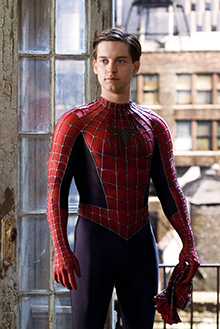
Peter Benjamin Parker, also known by his alter ego Spider-Man, is a fictional superhero portrayed by Tobey Maguire that is based on the comic book character of the same name. He is the protagonist of Sam Raimi's Spider-Man film in 2002, its two sequels, video games, and an animated series designed to be set within that continuity. This version of the character was followed by Andrew Garfield's portrayal in Marc Webb's The Amazing Spider-Man duology (2012–2014), with a further iteration being portrayed by Tom Holland set within the Marvel Cinematic Universe (2016–present). Maguire reprised his role as a supporting character in the Marvel Studios film Spider-Man: No Way Home (2021), appearing as an older version of himself alongside his two successors' versions of the character. To distinguish himself from the two other versions of himself, he is nicknamed "Peter-Two" by them, referred to by Marvel's official website as the Friendly Neighborhood Spider-Man, and in the film's script as "Raimi-Verse Peter" and "Raimi-Verse Spider-Man".
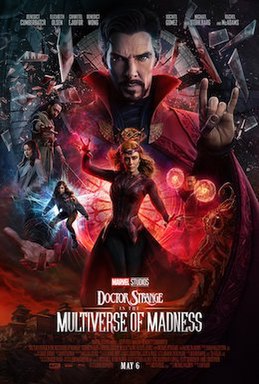
Doctor Strange in the Multiverse of Madness is a 2022 American superhero film based on Marvel Comics featuring the character Doctor Strange. Produced by Marvel Studios and distributed by Walt Disney Studios Motion Pictures, it is the sequel to Doctor Strange (2016) and the 28th film in the Marvel Cinematic Universe (MCU). The film was directed by Sam Raimi, written by Michael Waldron, and stars Benedict Cumberbatch as Stephen Strange, alongside Elizabeth Olsen, Chiwetel Ejiofor, Benedict Wong, Xochitl Gomez, Michael Stuhlbarg, and Rachel McAdams. In the film, Strange protects America Chavez (Gomez), a teenager capable of traveling the multiverse, from Wanda Maximoff (Olsen).
References
- 1 2 "Creative Rights". DGA. Directors Guild of America. Retrieved 28 May 2021.
- 1 2 Brook, Tom. "Director v studio: Who should have final cut?". BBC. BBC. Retrieved 28 May 2021.
- ↑ Citizen Kane at History Today .
- ↑ Brock, Tom. "Director v studio: Who should have final cut?". BBC. BBC. Retrieved 29 May 2021.
- ↑ Jewell, Cathy. "From Script to Screen: What Role for Intellectual Property?". WIPO. World Intellectual Property Organization. Retrieved 28 May 2021.
- ↑ Brownfield, Paul. "Matt Damon On 'Manchester By the Sea' & Why He Had Final Cut Approval – Produced By NY". Deadline. Deadline. Retrieved 28 May 2021.
- ↑ Siegal, Tatiana. "Fade-out on final-cut privileges?". Variety. Variety. Retrieved 28 May 2021.
- ↑ "Fade-out on final-cut privileges?" at Variety .
- ↑ "Michel Gondry talks Be Kind Rewind" Archived 9 August 2011 at the Wayback Machine at North by Northwestern
- ↑ "Film Has Two Versions; Only One Is Julie Taymor's" at The New York Times (20 March 2007).